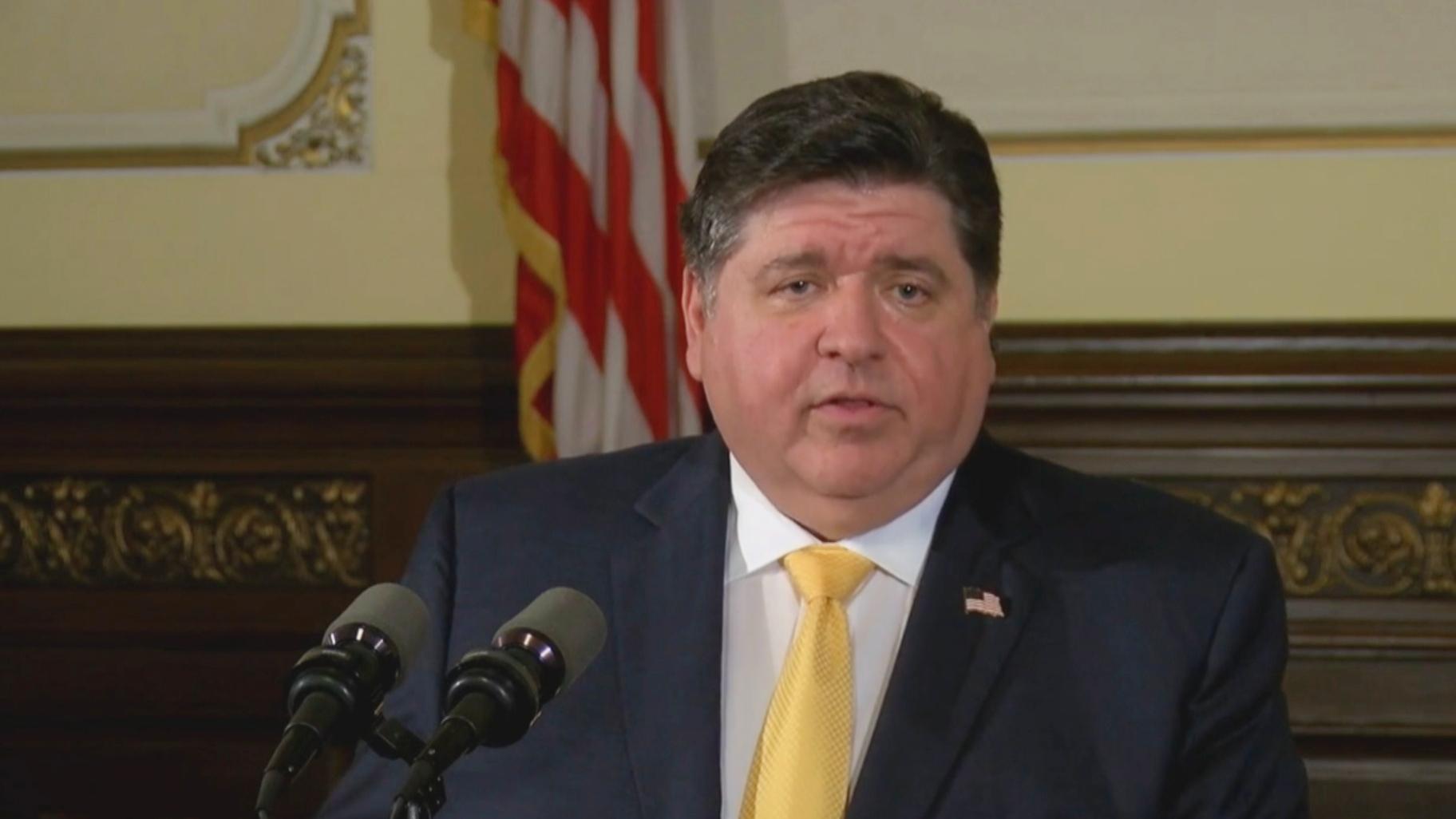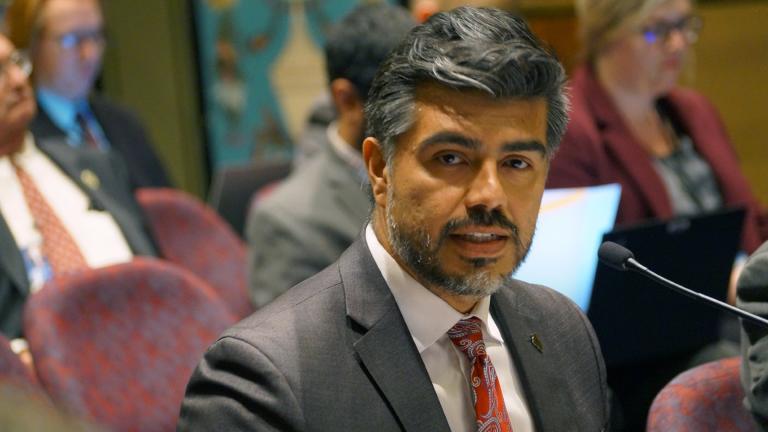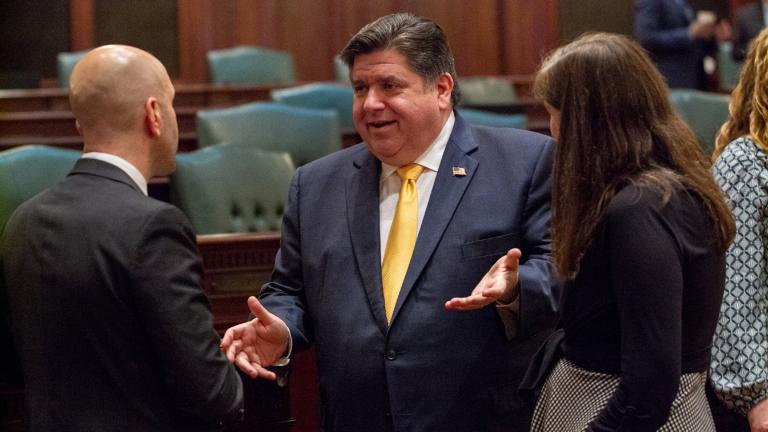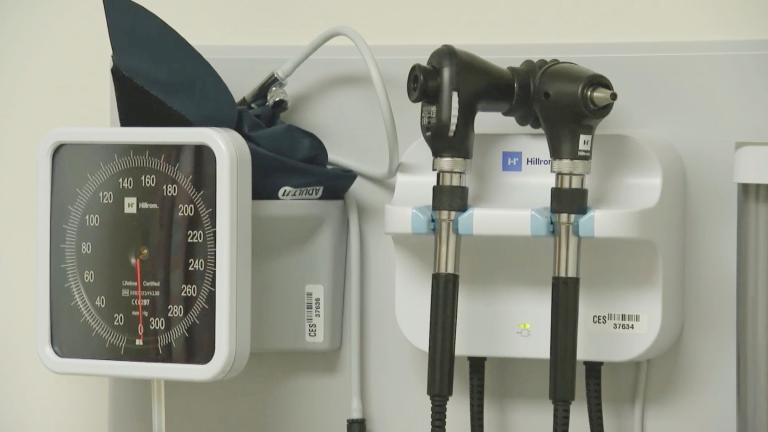 Gov. J.B. Pritzker speaks to the news media at the state Capitol on April 18, 2024. (WTTW News)
Gov. J.B. Pritzker speaks to the news media at the state Capitol on April 18, 2024. (WTTW News)
Gov. J.B. Pritzker, who appoints three of the Chicago Transit Authority’s seven board members, is calling for a change in leadership at the agency.
“Changes are going to have to take place, there’s no doubt, at the CTA, and I think that’s going to take some new leadership and additional leadership,” Pritzker said in response to a reporter’s question at an unrelated press event late Thursday.
When asked directly whether CTA President Dorval Carter should be fired, Pritzker was dismissive of the term.
“I know you all have tried to use the word ‘fired’ here,” Pritzker said. “I think that there needs to be an evolution of leadership in order for us to get where we need to go with CTA.”
Carter has been under scrutiny amid rider frustration with buses that never make their scheduled stops, unkempt train cars and safety concerns.
Pritzker also slammed the agency for not having a plan for addressing a projected budget hole upon the termination of federal funding grants that have been boosting transit agencies nationwide since the COVID-19 pandemic.
“We’re going to have to consider the plan that the CTA should have come forward with already, which we haven’t seen, but that may include changing fares and other things that will help us deal with what is clearly going to be a fiscal cliff,” Pritzker said. “We’re also hoping that we see the federal government along the way.”
Pritzker did not give an appraisal of his three appointees, though he pointed out that his picks do not have a controlling interest on the board.
The mayor of Chicago is responsible for appointing four seats, which constitutes a majority.
Pritzker said his appointees work with Chicago Mayor Brandon Johnson’s appointees to “evaluate and make changes to management.”
Reporters asked Johnson on Wednesday whether he has confidence in Carter.
“We continue to evaluate all of our leaders,” Johnson said, “and Dorval Carter’s no exception there.”
Johnson said his administration continues to “make sure that leadership is responding to the vision that I have for the city of Chicago” and that “in the event that they don’t live up to our expectation, we’ll make a different decision.”
Johnson called himself an avid supporter of public transit and said, “We’re going to continue doing everything we can to make sure it’s world class.”
Johnson’s communications director, Ronnie Reese, said in an email Friday that Pritzker’s use of the terms “leadership” and “evolution” were vague. That “could mean anything,” Reese said. “Board members are also leaders.”
The board is undergoing turnover.
Last month, the Chicago City Council approved Johnson’s appointment of Elevated Chicago executive director Roberto Requejo to the CTA board. According to a news release, Requejo has a degree in urban planning and at Elevate Chicago “spearheaded the coalition’s workplan to promote equitable transit-oriented development, securing over $2 million annually to support a project pipeline valued at more than $600 million.”
On Wednesday, alderpeople approved Johnson’s second appointment to the CTA board, Michael Eaddy, a pastor. Public transit activists made known on social media their disappointment with Eaddy for what they believe to be his lack of transit experience.
A CTA spokesperson did not acknowledge questions about Carter’s future with the agency but did email WTTW News a lengthy statement addressing ridership and funding.
The statement said, in part: “CTA recognizes that without additional revenue streams, it may be faced with drastic service cuts, employee layoffs, or other unwanted cost-saving measures. CTA will continue working closely with its regional sister agencies – RTA, Metra and Pace—to engage local and state officials on pursing a variety of new, long-term funding solutions that not only help support day-to-day operations, but also capital funding that can be used to match and unlock the unprecedented federal funding made available as part of the federal Bipartisan Infrastructure law.”
Contact Amanda Vinicky: @AmandaVinicky | [email protected]








